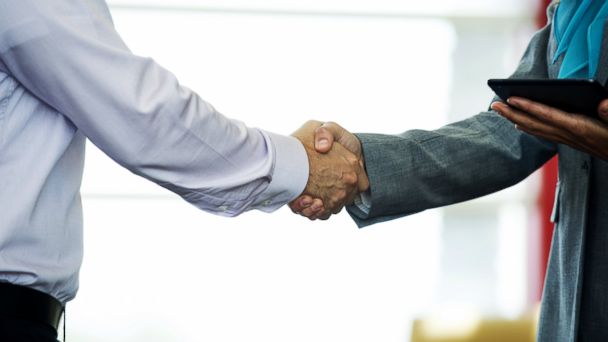One Tech Guru's Crusade to Ban Handshaking

TechCrunch founder Michael Arrington wants to ban handshaking. (Credit: Getty Image)
If you ever meet TechCrunch founder Michael Arrington, you might not want to shake his hand.
It's not that he doesn't wash his hands in the men's room or anything like that. It's that he's been on a crusade since 2009 to end the "goddamned barbaric practice of handshaking," as he so eloquently put it on his personal blog, UnCrunched.
Arrington said he recently came down with the flu after attending a conference, and he suspects he got the virus after shaking hands, which he called a "repulsively stupid activity," in his blog post. He wrote that the only reason we shake hands is because it's rude not to, but the practice can spread illnesses around.
But with outbreaks of the measles and the mumps on the rise again - not to mention an Ebola outbreak in West Africa - how worried should we be about shaking hands?
Handshaking is one of the modes of transmission for viruses and bacteria, but as long as people maintain proper hand hygiene, Dr. William Schaffner, a former president of the National Foundation for Infectious Diseases, said there's no reason to end the practice.
You can't get Ebola from shaking hands because Ebola is spread by exchanging bodily fluids, he said. And as long as you're vaccinated against the measles and mumps, you should be protected.
"That should not stop us from shaking hands, and it won't," said Schaffner, who is currently chairman of preventive medicine at Vanderbilt University Medical Center in Nashville, Tenn. "During influenza season, you begin to see the elbow bump being used much more commonly in social gatherings, often with a smile."
Handshaking can spread cold and flu viruses as well as the bacteria that causes norovirus, he said. These viruses and bacteria live on the hands for a few hours but don't multiply. Assuming you don't touch your nose, eyes or mouth and wash hands or use hand sanitizer before handling food, you can avoid getting sick from them, he said.